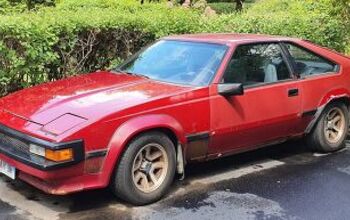Li-ion Bubble Trouble Ahead; Volt Battery Chief Jumps In Too

Li-ion battery start ups have been the dot.coms of the last few years. And like that not-so little bubble, a report now warns of a brewing global overcapacity, and coming shakeout. Some sixty li-ion battery makers are in various stages of development and production, fueled by projected EV demand. GreenCarCongress reports:
a new report from Roland Berger Strategy Consultants, planned investments in lithium-ion manufacturing will result in significant overcapacity between 2014 and 2017 relative to the demand generated by that growth, especially in the US and in Japan.
As a consequence, Roland Berger forecasts, only six to eight global battery manufacturers will survive the next five to seven years. These are the findings of a new market survey conducted by Roland Berger Strategy Consultants titled “Powertrain 2020: Li-ion batteries – The next bubble ahead?”
Planned investments will thus result in significant overcapacity between 2014 and 2017, especially in the US and in Japan. Given the announced investments, capacity in 2015 will already reach 200% of the demand projected for 2016. In addition, not all investments have been announced; as-yet unknown investments by key players will lead to further overcapacity, and national subsidies will stimulate even more investments.
Those “as-yet unknown investments” has attracted one industry pioneer. GM’s Director of Global Battery Systems Denise Gray has announced her departure for an un-named new battery start-up in California. gm-volt.com‘s Lyle Dennis: “I would speculate it is possible she could be joining Stanford silicon nanowire battery expert Yi Cui in his start-up company, Amprius.”
The real challenge is to drive production costs down, and that takes large capital investment and economies of scale. According to the Roland Berger report: “€50-100 million for new cell chemistry, €350 million for a 100,000 unit plant.”
This creates a dilemma for the West and its governments, who are backing battery research and development.
Western governments therefore need to act now in order to avoid losing future technologies to Asia; at the same time, battery suppliers need a well-defined strategy to gain market share fast in order to survive, the consultancy cautions. And last but not least, investors should be aware of massive investment risks. Wolfgang Bernhart, Partner with Roland Berger Strategy Consultants, notes “Unfavorable factors are piling up. But managed correctly, electrified powertrains will still be a profitable market in the future.”
In related news, li-ion battery maker A123 stock is off 42% from its 52 week high, and Valance is down 67% from its 52 week high.

More by Paul Niedermeyer
Latest Car Reviews
Read moreLatest Product Reviews
Read moreRecent Comments
- ToolGuy "The car is the eye in my head and I have never spared money on it, no less, it is not new and is over 30 years old."• Translation please?(Theories: written by AI; written by an engineer lol)
- Ltcmgm78 It depends on whether or not the union is a help or a hindrance to the manufacturer and workers. A union isn't needed if the manufacturer takes care of its workers.
- Honda1 Unions were needed back in the early days, not needed know. There are plenty of rules and regulations and government agencies that keep companies in line. It's just a money grad and nothing more. Fain is a punk!
- 1995 SC If the necessary number of employees vote to unionize then yes, they should be unionized. That's how it works.
- Sobhuza Trooper That Dave Thomas fella sounds like the kind of twit who is oh-so-quick to tell us how easy and fun the bus is for any and all of your personal transportation needs. The time to get to and from the bus stop is never a concern. The time waiting for the bus is never a concern. The time waiting for a connection (if there is one) is never a concern. The weather is never a concern. Whatever you might be carrying or intend to purchase is never a concern. Nope, Boo Cars! Yeah Buses! Buses rule!Needless to say, these twits don't actual take the damn bus.































Comments
Join the conversation
Sounds like a market where only the strong will survive.
Roland Berger consulting is something like Anderson Consulting, it's the laughing stock in Germany. Not sure why someone gives them the honor of quoting them. sure, the manufacturers will consolidate. the same way all new industry companies consolidate once the mushrooming market stops feeding everyone. Many of the car, LED and anything else manufacturers won't exist in a few year. CPU, HDD and other manufacturers already went through this. No need to pay someone much money to predict the same thing for Li-ion manufacturers. Everything they say about overcapacity is pure speculation, at best. As long as mobile devices are growing, and more and more vehicles will have some type of hybrid powertrain, demand will go up. Of course, there is the shortage of Lithium, and maybe a better technology, but that is not what Roland Berger's interns wrote